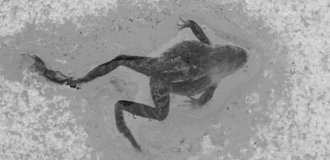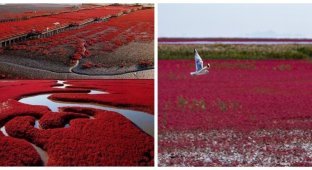Red beach in China: you can’t sunbathe, you can only admire (6 photos)
There are many places in the world that are hard to believe exist. They seem to be the fruits of someone’s rich imagination, and their photographs look like the skillful work of a Photoshop master. One of these is Panjin Beach, a key natural attraction in the Chinese province of Liaoning, in the northeast of the country. Why can’t you sunbathe on it and why does it attract tourists? 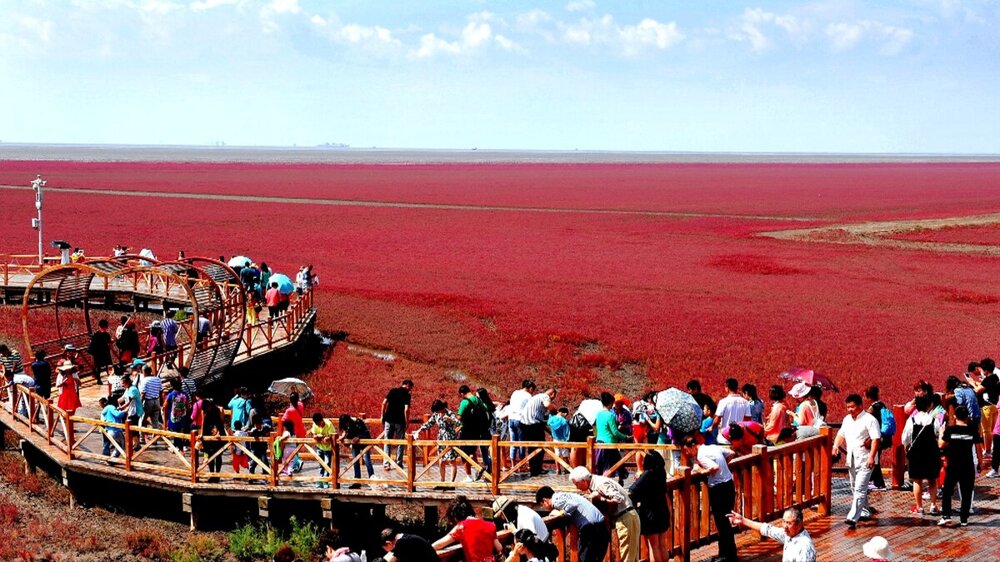
The main association with the word “beach” is golden sand. Well, at worst, pebbles. Panjin, located in the Liaohe River Delta, can boast of neither. What makes it unusual is a plant called sweda. It begins to grow in the spring, in July it turns red, which reaches its maximum brightness in September and October, turning the beach into a wonderful carpet. 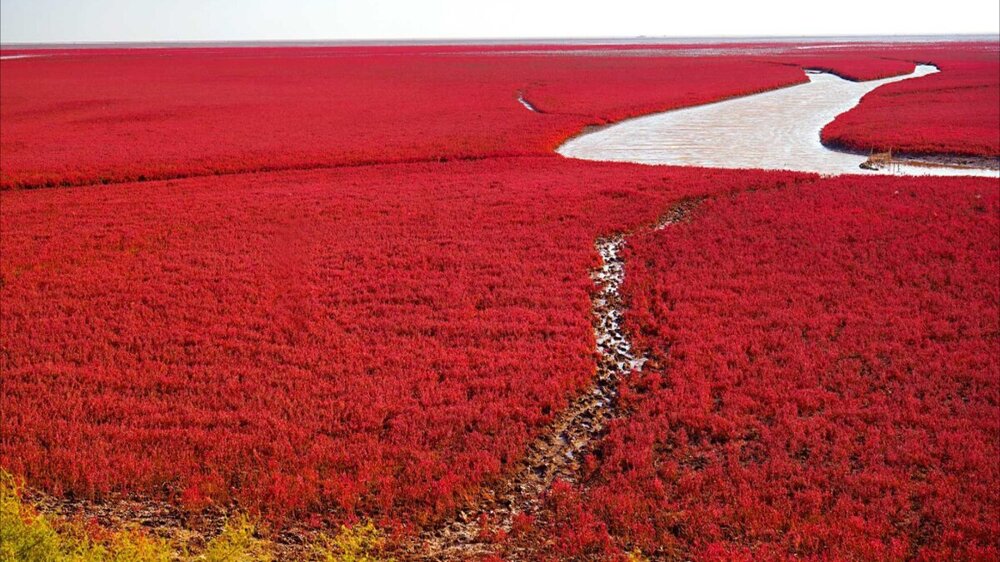
In general, there are about a hundred varieties of sweda. This plant is found in more or less saline places around the globe. But the species that grows on Red Beach is truly unique. The local soil is highly alkaline. Because of this, it is not suitable for many plants, but the Sweda likes it, which allows it to grow in abundance. 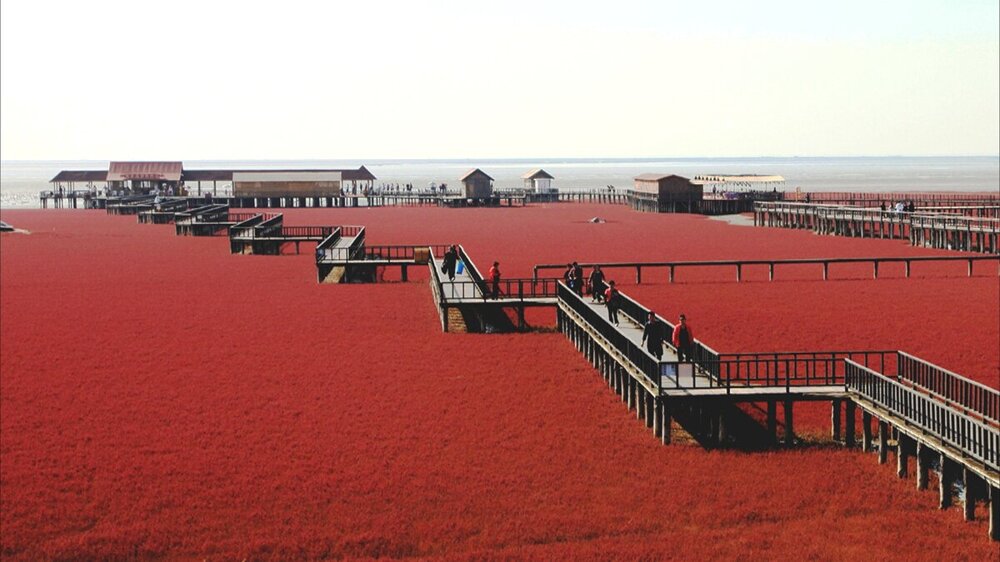
Tourist paths.
About two million tourists come to admire the Red Beach every year. But they shouldn’t take swimsuits with them. Not only is it forbidden to sunbathe on the beach, it’s also forbidden to walk on it. Since 1988, most of it has been a nature reserve. In the same places where tourists are allowed, they are allowed to move only along a wooden path specially designed for this. Not long ago, a winter tourism program appeared. You won't be able to admire the red carpet, but you can look at the no less impressive world of ice. It was created by nature from layers of huge ice ridges - gifts of the Bohai Sea. 
Red beach in winter.
It’s not just its color that makes Red Beach famous, evoking associations with fantastic alien landscapes. The area is home to more than 260 species of birds and 399 species of animals. Among them is the red-crowned crane, which is also called the Manchurian or Japanese crane. 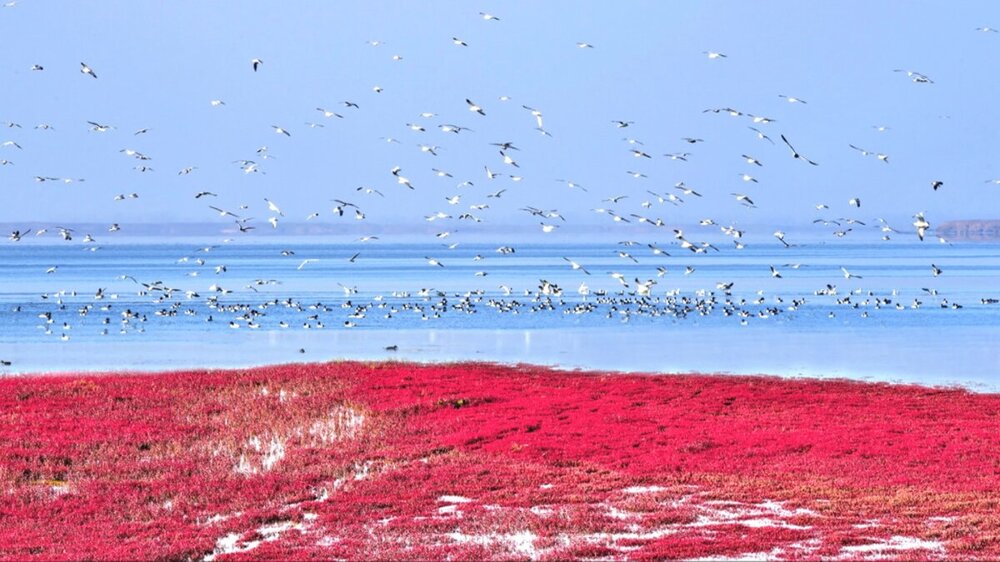
It is considered one of the rarest cranes in the world and is known as a symbol of longevity, loyalty and good luck. At one time, he was even chosen as a candidate for the title of national animal of China, but it didn’t work out. He also gave the second name to the Red Beach - the House of Cranes. Another rare bird found here is the Chinese gull. According to recent estimates, there are about 21-22 thousand individuals left in the world, but we must understand that this number is constantly decreasing. As a result, the species has endangered status. 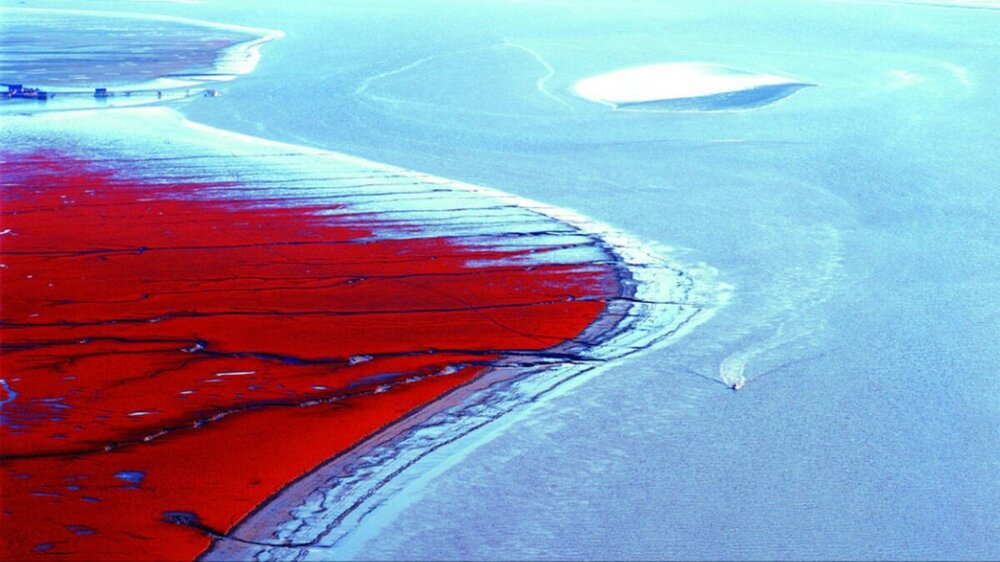
Unfortunately, not everything is rosy on Red Beach. Yes, tourists in this area have nothing to worry about; nothing bad will happen to them there. But the ecosystem is in danger, despite the fact that it was taken under state protection more than thirty years ago. The fact is that the wetlands are home to a large oil field, which is very important for the region. Another serious problem is seafood farms and rice fields, the presence of which is not very useful for wildlife, because competition for resources has not yet been canceled. But there is good news - the Chinese authorities not only do not turn a blind eye to the existing problems, but are also trying to cope with them, realizing the high value of local biodiversity for both China and the whole world.





